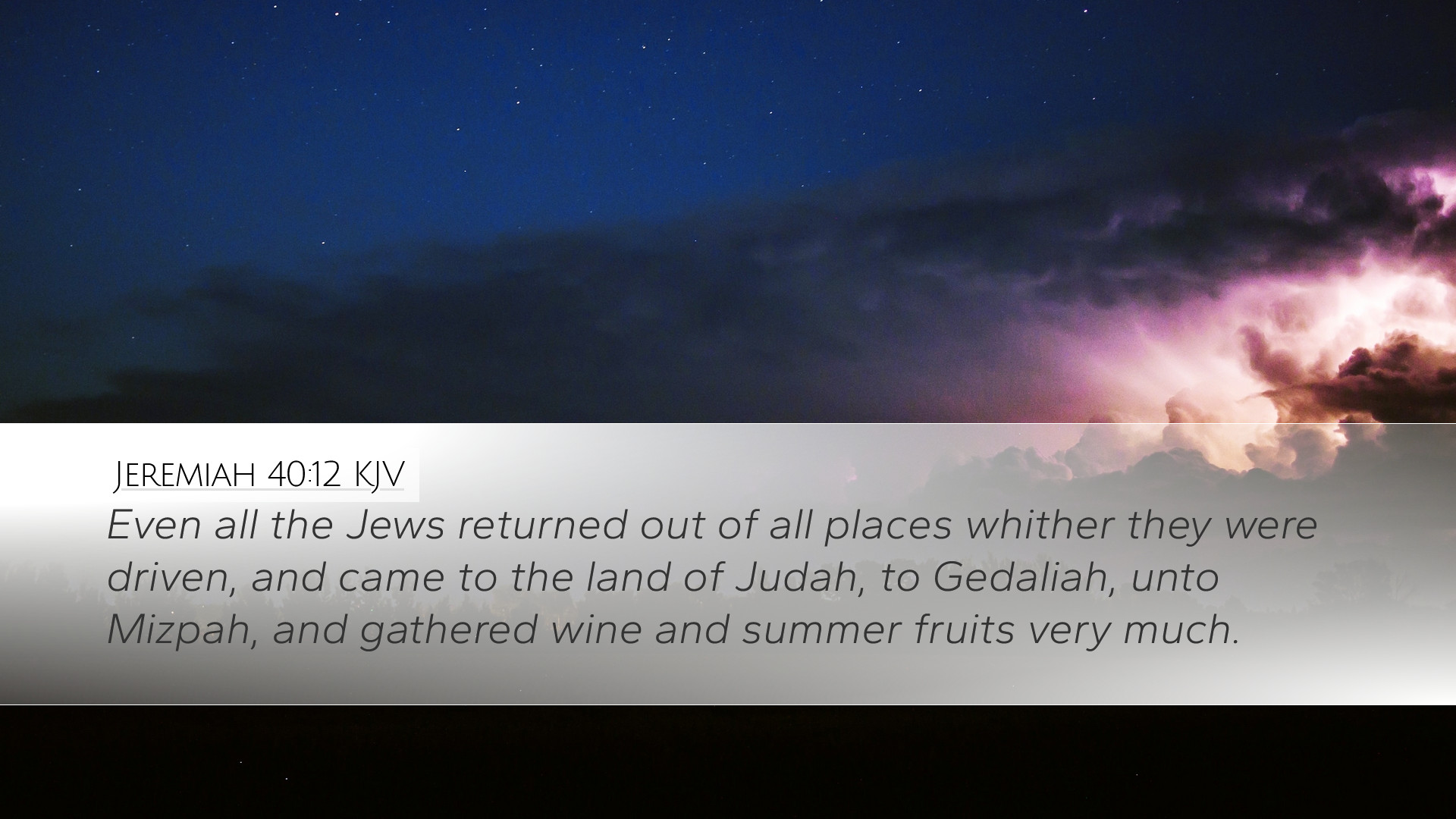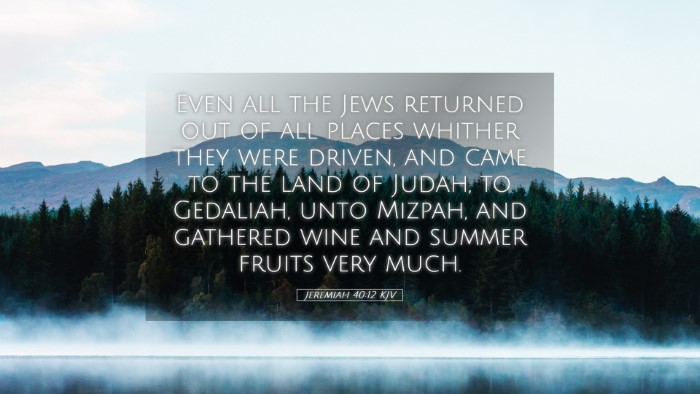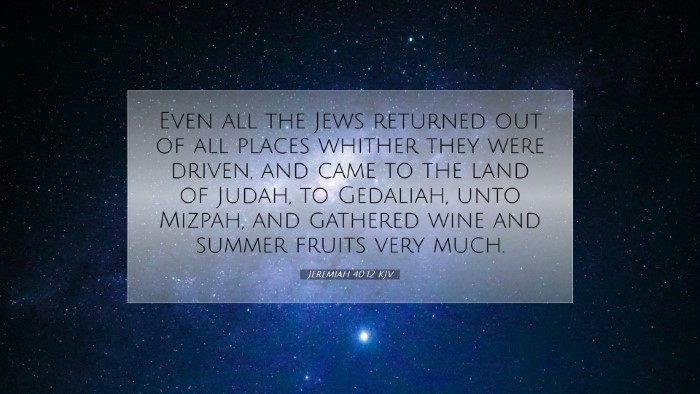Commentary on Jeremiah 40:12
Verse Reference: Jeremiah 40:12 - "And they came to Jerusalem and gathered together all the poor that were left of the people of Judah; and they gathered together the king's daughters, and the rest of the people that were left in the city, and those that were fallen away, and all the people that remained in Judah, whom Nebuzaradan the captain of the guard had left." (KJV)
Overview
This verse captures a pivotal moment in the aftermath of the Babylonian conquest of Jerusalem. It signifies not just the physical gathering of the remnants of the people of Judah, but also the spiritual and social implications of this event. Commentaries from early theologians and scholars provide insight into the themes of hope, restoration, and the covenant faithfulness of God amidst devastation.
Historical Context
The destruction of Jerusalem in 586 B.C. brought about enormous upheaval in the Jewish community. A remnant of the population remained, characterized largely by poverty and desperation. The verse indicates a grassroots movement, as the remnant comes together under the leadership of various survivors, emphasizing the importance of community and rebuilding after trauma.
- Matthew Henry: Henry notes that this gathering of the poor, who were left behind, indicates God’s provision for those who seem abandoned. He emphasizes that even after judgment, God still retains a people for Himself.
- Albert Barnes: Barnes suggests that this verse illustrates God’s mercy, as He had promised to preserve a remnant despite the judgment. The gathering includes those who had been particularly vulnerable during the siege.
- Adam Clarke: Clarke draws attention to the socio-political dynamics at play, highlighting that the remnants’ assembly could have been seen as an act of defiance against Babylonian authority, or as a move towards political stability in a time of chaos.
Theological Insights
This verse raises profound theological reflections about God's nature and His unfolding plans for His people. The gathering signifies a glimmer of restoration that is crucial for the community's identity.
- Covenant Faithfulness: The remnant serves as a reminder of Yahweh’s covenant faithfulness. Even in dire circumstances, God retains a sovereign plan for His chosen, emphasizing the theology of remnant throughout scripture.
- Hope in the Midst of Despair: The act of gathering the poor and vulnerable speaks to a God who empathizes with human suffering. It provides a relational aspect to theology where God is portrayed as a refuge for the oppressed.
- Community and Restoration: The verse underscores the importance of community in the rebuilding process. The collective bringing together of people highlights the necessity of relationships in the faith journey.
Practical Applications
For pastors, students, and theologians, Jeremiah 40:12 offers several practical lessons:
- Leadership in Crisis: Effective leadership emerges in times of distress. The leaders of this remnant had the responsibility to guide their community towards restoration. This is crucial for modern church leadership.
- Empathy and Social Justice: The emphasis on the poor reflects a call to care for the marginalized and oppressed within society. The church must champion advocacy and ministry to the disenfranchised.
- Hope and Perseverance: In the face of significant challenges, believers are reminded of God’s redemptive work. This encourages spiritual resilience and steadfastness amidst trials.
Conclusion
Jeremiah 40:12 invites readers into a rich tapestry of hope, community, and divine faithfulness. As this verse resonates through time, it provides profound insights not only into the historical injustices faced by God’s people but also into the transformative power of God’s presence in their ongoing story.
In the face of adversity, the gathering of the remnant serves as an eternal reminder of God's unwavering commitment to His people, encouraging contemporary believers to reflect on their own roles in fostering community and hope in a world that often mirrors the desolation faced by Judah.


